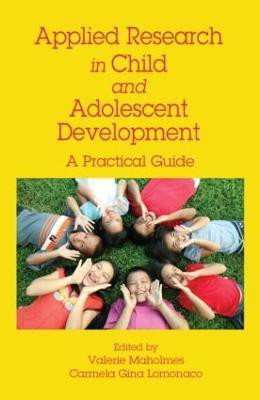Applied Research in Child and Adolescent Development(English, Hardcover, unknown)
Quick Overview
Product Price Comparison
Developed for an NIH training institute, this volume is organized around the most frequently asked questions by researchers starting their careers in applied research in child and adolescent development. With contributions from the leading scholars in the field, actual research experiences highlight the challenges one faces in conducting such research. The techniques and theoretical frameworks most suitable for guiding the applied research process are reviewed along with related ethical and cultural considerations. Each chapter features the authors' introduction to their own careers in applied research. Also included are practical tips, case studies, and sidebars featuring frequently asked questions. This practical resource provides tips on how to: Modify the most frequently used methodological techniques while maintaining the integrity of the data Manage the unpredictable nature of real world research Frame community relevant research questions in an academically acceptable way Secure funding to conduct applied research Disseminate the research results so as to have the greatest impact on policy and practice. The book opens with the most frequently asked questions, tips on getting started in an applied research career, and an overview of and theoretical framework for generating applied developmental research ideas. Section 2 focuses on research designs including the most frequently used methodological and measurement techniques and tips on how to modify them to applied settings. Ethical challenges and cultural issues in working with special populations are also addressed. Section 3 focuses on conducting applied research in school, community, and clinical settings with an emphasis on the challenges encountered when conducting actual research as opposed to the more controlled settings taught in a classroom. Guidelines for protecting the populations involved in the study and strategies for recruiting and retaining participants are also addressed. The book concludes with strategies for disseminating research findings so as to have the greatest impact on policy and practice, for publishing research, and for securing funding. Intended as a practical guide, this book is ideal for those just starting their careers in applied research, for students preparing their dissertations, and for the faculty who prepare these students. The book's accessible approach also appeals to researchers in the behavioral, social, and health sciences, education, and those in government and industry.


